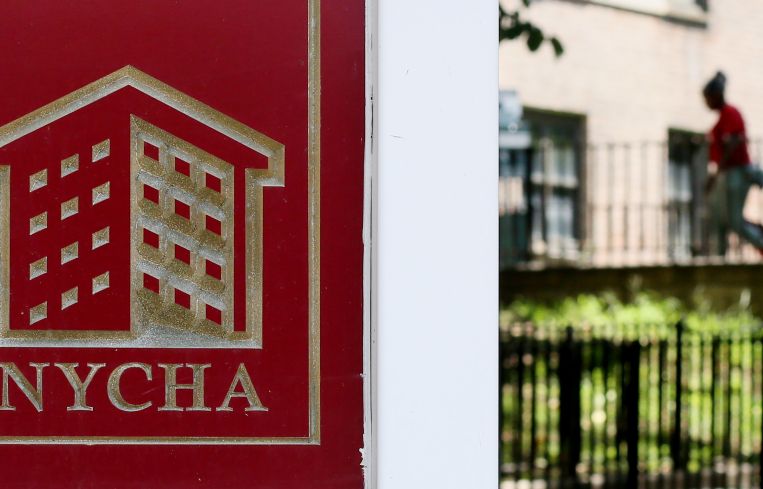City Council OKs More Oversight of Private Management of NYCHA Housing
By Abigail Nehring May 16, 2024 8:14 pm
reprints
Private companies that have poured billions into New York City Housing Authority (NYCHA) developments may soon have to open their books for closer scrutiny, thanks to a transparency bill the New York City Council passed Thursday.
The bill introduced earlier this year by Councilmember Alexa Avilés would require developers to turn over information about their operating costs and income, plus details about how they interact with residents. The measure covers some 138 public housing projects that have so far opted into the Permanent Affordability Commitment Together (PACT) program designed to convert NYCHA buildings into privately managed Section 8 housing.
The legislation comes amid a burst of PACT conversions over the past year, with developers closing on $1.8 billion in financing for capital repairs at public housing developments across the city in 2023. But City Council members want to proceed cautiously across the remaining 274 NYCHA developments.
“This oversight is important because we want residents to have the space and time to voice their concerns and share their stories about how successful PACT is,” Councilmember Chris Banks, chair of the public housing committee, said at a hearing in April. “Compared to the nearly 90-year history of public housing, the PACT program is still new to NYCHA.”
NYCHA has pinned its hopes on the public-private partnership to help rescue the city’s public housing projects from decrepitude and to make up for a cumulative funding loss of more than $1 billion in federal capital grants over the last two decades.
A federal reform allowed NYCHA to begin rolling out the PACT concept eight years ago, but things kicked into high gear after state lawmakers created the NYCHA Preservation Trust in 2022, clearing the path for at least 25,000 apartments to join PACT and permanently exit the federal public housing law known as Section 9.
Now that over 20,000 apartments have done so, local legislators want more oversight to help other NYCHA housing residents decide if they want to vote to join the program.
PACT has attracted nonprofit developers such as Settlement Housing Fund and big multifamily owners alike, with L&M Development Partners, BRP Companies, Camber Property Group, Arker Companies and others all getting into the game.
Some 41 percent of PACT residents surveyed last year by the Community Service Society reported that their landlord did an “excellent” job respecting tenants compared to only 25 percent of regular public housing residents. Yet, PACT residents were 11 percent more likely to say there were serious conditions in their apartments like mold, faulty heating systems or no hot water.
If enacted, the bill would measure concrete outcomes like those. It would also require developers to disclose the exact cost of repairs and upgrades, the average time to resolve work orders and a breakdown of fees tenants pay on top of their rent. Companies would also provide information about other activities, including how many evictions they initiate and what kind of public outreach they do to residents, who are the arbiters of whether to join PACT, according to state law.
NYCHA — which has been under a federal monitor for several years — attempted to address some of those questions through an online dashboard, but it lacks a lot of the information the City Council wants the public to know.
A spokesperson for NYCHA said in email that the dashboard “provides detailed reports and unprecedented insight into the PACT program” and is “aligned” with the bill, which passed by a full City Council vote of 48 out of 51.
The bill will now move to Mayor Eric Adams’s desk to be signed into law or vetoed.
Abigail Nehring can be reached at anehring@commercialobserver.com.



